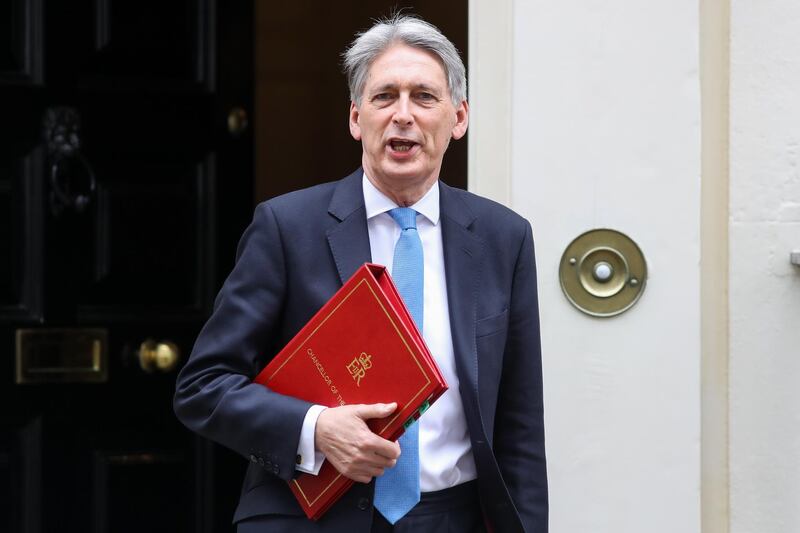The UK chancellor has claimed there is “light at the end of the tunnel” as he unveiled a small boost to the nation’s growth outlook.
In his Spring Statement to Parliament on Tuesday, Philip Hammond said that the British economy is set to grow by 1.5 per cent this year, slightly higher than the 1.4 per cent forecast in November.
But the forecasts for 2019 and 2020 were kept unchanged at 1.3 per cent, while 2021’s was reduced to 1.4 per cent.
The forecasts, provided by the independent Office for Budget Responsibility, still leave the UK among the slowest growing major economies in 2018, at a time when global growth is picking up.
Earlier on Tuesday, the Organisation for Economic Cooperation and Development said Britain would grow more slowly than all the other Group of 20 leading economies this year.
The predictions are also significantly lower than those made before the Brexit vote, when growth was expected to be above 2 per cent for each year between 2018 and 2021.
Lucy O'Carroll, chief economist at Aberdeen Standard Investments, said there was "little to cheer" from the chancellor's statement.
"A woeful growth outlook by past standards. Potentially massive dislocation for the economy just around the corner. And all subject to huge, Brexit-related uncertainties," she continued.
_______________
Read more:
'No-deal Brexit' annual cost could reach £58bn for UK, EU companies
Tusk talks tough on Brexit despite British pleas for good deal
_______________
Seeking to strike an optimistic note, Mr Hammond told MPs: "I am pleased to report... on a UK economy that has grown in every year since 2010."
Prime Minister Theresa May's Conservative government had made "solid progress towards building an economy that works for everyone", the chancellor continued.
Mr Hammond added that the latest official forecasts would lead to "more jobs, rising real wages, declining inflation, a falling deficit and a shrinking debt".
He claimed that the public finances are at a "turning point" as the country's debt levels start to come down a decade on from the global financial crisis.
Debt is forecast to drop as a share of GDP from 2018/2019 and the OBR has revised down both debt and borrowing in every year.
Borrowing is now forecast to be £45.2 billion in the current financial year that runs to April 2018, from a forecast of £49.9 billion made in November, Mr Hammond said.
The shortfall was also cut for the following years, although the government is still seen running a small deficit by 2022/23, the end of the OBR's forecast period.
Mr Hammond added that the borrowing forecasts confirmed "the first sustained fall in debt for 17 years, a turning point in the nation's recovery from the financial crisis of a decade ago".
Some Conservative MPs urged the chancellor to take advantage of the progress in reducing the deficit to spend more on an over-stretched health system, the military and other services.
Mr Hammond has said he might be able to allow a bit more public spending later this year.






